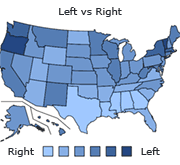who do you really hate?
This is about bad uncles, so if you know you have one tough, but this would sure make you laugh. ncle may refer to: A family relationship, either the brother of a parent or the husband of a sibling of a parent. A woman with an equivalent relationship is an aunt, and the reciprocal relationship is that of a nephew or niece. See Cousin. A title of respect for elders (for example neighbours, acquaintances, as well as total strangers), especially in Nigeria, India, Pakistan and China An honorific bestowed upon individuals of any gender. See fictive kinship. A cry of surrender An idiom: Dutch uncle, a person who delivers stern lectures Uncle Sam, a personification of the United States Uncle Tom, a pejorative term for a black person who plays up to racial stereotypes Uncle Tom Cobley, a British folk saying meaning "etcetera" Bob's your uncle, a Commonwealth expression roughly equivalent to "and there you have it" A person: Blind Uncle Gaspard Uncle Charlie Osborne, a musician from the Appalachian Mountains Uncle Dave Macon, American musician Uncle Fester (author), the penname of Steve Preisler Uncle Ho, a nickname for the Vietnamese leader Ho Chi Minh Uncle Joe, a nickname for the Soviet leader Joseph Stalin Uncle Kracker, American musician Uncle Miltie, a nickname for Milton Berle
can you predict your uncles? can you? i can hear a yes? well good your in the right place!! A cousin in English kinship terminology is a relative with whom one shares a common ancestor, but in modern usage the term is rarely used when referring to a relative in one's own line of descent, nor where there is a more specific term to describe the relationship, eg brother, sister, aunt, uncle. The term blood relative can be used synonymously, and underlines the existence of a genetic link. A system of degrees and removes is used to describe the relationship between the two cousins and the ancestor they have in common. The degree (first, second, third cousin, etc.) indicates the minimum number of generations between either cousin and the nearest common ancestor; the remove (once removed, twice removed, etc.) indicates the number of generations, if any, separating the two cousins from each other. For example, a person with whom you share a grandparent is your first cousin; someone with whom you share a great-grandparent is a second cousin. Where your relationship to the nearest common ancestor is different from your cousin's relationship then the term removed is used to indicate this, for example the child of your first cousin is your first cousin once removed because there is a generation between you. Non-genealogical usage often eliminates the degrees and removes, and refers to people with common ancestors merely as cousins or distant cousins. The system can handle kinships going back any number of generations (subject to the genealogical information being available). In 2004, genealogists discovered that U.S. Presidential candidates George W. Bush and John Kerry shared a common ancestral couple in the 1500s. It was reported that the two men are sixteenth cousins, three times removed.[1] However, the two are in fact ninth cousins, two times removed.[2] Also, in 2007, it was revealed that U.S. vice president Dick Cheney and senator Barack Obama are eighth cousins.[3] If one goes back far enough, at some point all human beings will be found to be related. It has been estimated that the most recent common ancestor of Western Europeans may have lived as recently as the year 1000 CE, or approximately 30 generations ago.[4]

